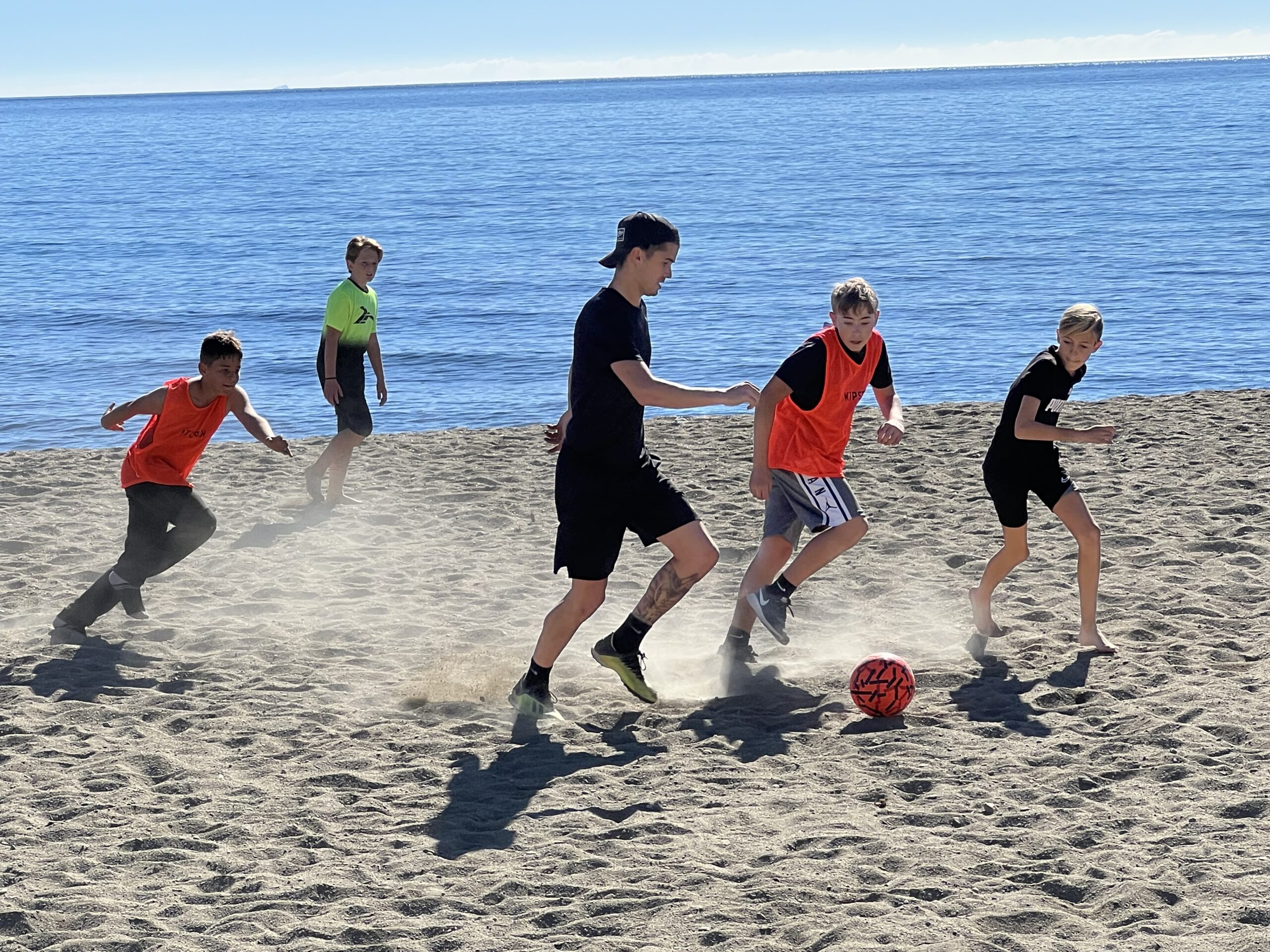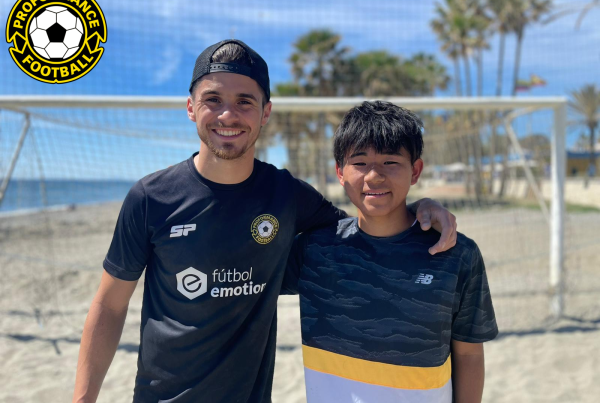Football, like many other team sports, is not simply about playing the game. It offers a wealth of benefits both physical and psychological for young players and it teaches them life skills that can set them up for the future.
European football is the world’s most loved sport. It is in every home, everywhere around the world. Millions of children worldwide grow up loving football and they all want to play. After all, it is “the beautiful game”. Not everyone will rise to the top and become a million-dollar player. It is fair to say that the percentage of youth academy players that make it pro is very slim. That’s a reality we must face and a severe heartbreak, especially for those young men and women who reach for the stars, get to dip their toes and then it is all taken away. That is not easy to swallow and most people would crumble, but players can sustain a lot more in life because of their upbringing playing football.
- Personal Growth: Football teaches children how to persevere even in the face of difficulty. It instills confidence in the young player and helps build their self-esteem and self-worth. This team sport brings young people together. They have to communicate with each other and trust each other to play the game together with the ultimate goal to win. This builds mental toughness and helps players overcome shyness. Football harnesses a great deal of concentration, adaptability, focus, and quick decision-making. These skills are naturally instilled in youth players and put to practice daily. Players learn these skills seamlessly by training and playing; skills that will serve them for the rest of their lives.
- Health Benefits: Football is a physical, fast-paced game that demands various skills. Players run, jump, quickly change direction, and stop and go. All are factors that improve cardiovascular health. The training sessions, especially professional sessions, provided by pro club youth academies and Proformance Football, led by Yuri Ruh dos Santos include practice drills, complex tactical and running drills to develop strong attack and defensive techniques. They all encourage speed, strength, and stamina. These training sessions nurture a high level of cognitive development. The motor skills engaged in these professional football trainings, specifically feet and eye coordination, along with increased spacial awareness in a fast-moving setting, is a turbo injection of positive activity for the development of the brain.
- Teamwork: European football teaches children accountability, leadership, and positive sportsmanship. Every single position has a clearly defined purpose which must be well executed to play successfully. Each player, in their respective position, must fulfill their responsibility and execute their part with meaning as part of the team. This brings us to teamwork, where each player plays their part in line with other players to support each other to reach a common goal; to score a goal. They must learn to work together, a life skill that is of utmost value both on and off the pitch.
- Discipline: Repetitive drills, the constant pursuit to improve their skills, learning proper techniques, and practicing set pieces, take a high level of discipline and patience. Each training lays the foundation for a strong work ethic, a skill that will serve the children for the rest of their lives.
- Mental Strength: All sports are a fantastic way to build mental strength. Setbacks are bound to happen. Whether it’s a mistake that sets the team back or a personal setback due to an injury; the fact is that there are always setbacks. It is never a complete rose garden. Sometimes you win and sometimes you lose. That’s the nature of football on a personal level and as a team. Young players are taught at a very young age to experience these setbacks and learn how to move forward from a major upset. They learn how to persevere. Football provides endless opportunities to develop mental strength from learning to remain calm under pressure and to retain the ability to focus during chaotic situations.
- Socialization: Football teaches children how to communicate effectively and work well together. Players rely on each other to make things happen. No one player can play the game alone. It brings even the most introverted out of his/her cocoon. They do not have a choice but to communicate and learn to rely on each other by creating opportunities on the field for their teammates to deliver or blocking the opposition to enable their team to move forward. Youth players tend to develop strong, long-lasting friendships through football. They learn to respect one another and they learn to receive direction from authority (coaches). These social skills are drilled into them by default in a football training session. These social skills are valuable assets that will serve them for life.
- Builds Character: Football builds character. Children develop their character through teamwork, interaction, and the physical and mental demands of the sport. They learn about themselves and how to incorporate who they are with others. As it is a team sport, players develop their ability to shine as unique individuals as part of a group. They learn to care about others and pay attention to others and recognize their needs as well as learn to take a stance to be heard and noticed. The game is all about creating opportunities for each other as a team. It forces players to be aware of their teammates and their opponents as well as forces players to call for the ball when they open up and have the opportunity to create a play or score for their team. It is a constant play of giving and taking, but when you take, you take for everyone on your team. It is a beautiful journey of self-discovery and self-growth among peers.
Football is about passion, love, and identity. It is very competitive. It is the one sport that brings cultures together on a worldwide forum. It provides children with the opportunity to develop in such a multi-facet environment, which is nothing short of a valuable gift for life. When your child is part of a football academy, they are not simply doing an after-school activity. They are learning valuable skills in a fun-filled environment that will set them up for life, as professional players or not.







